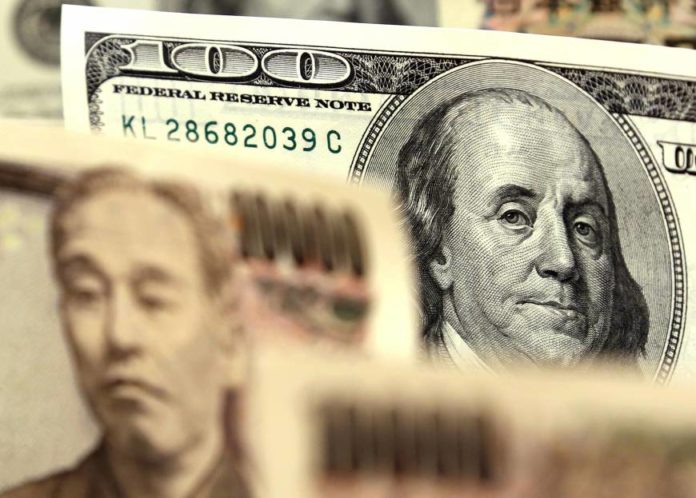
TOKYO: The dollar fell against the safe-haven yen and Swiss franc on Tuesday as investors cut their exposure to riskier assets amid the partial U.S. government shutdown and signs of confrontation between the White House and the Federal Reserve.
The dollar fell 0.39 percent to 110.00 yen, its lowest level since late August and is set to fall for an eighth straight session against the Japanese currency, with London and New York shut for Christmas.
The yen also hit a 16-month high against the British pound, trading at 139.90 yen and a four-month high against the euro, at 125.60 yen.
The Swiss franc rose 0.2 percent against the dollar to a 12-week high of 0.98355 to the dollar, extending its 0.9 percent rise on Monday, its biggest daily gain in 11 months.
Gold rose to a six-month high of $1,269.30 per ounce on Monday.
U.S. stocks plunged more than 2 percent while oil prices sank more than 6 percent in a holiday-shortened Monday trade, as developments in Washington added to investors’ concern about a slowdown in the global economy next year.
Wall Street’s volatility index, which measures the implied volatility of stocks and is often seen as a fear gauge for investors, jumped to 36.10, the highest since Feb. 6, when it briefly shot up to as high as 50.30.
U.S. President Donald Trump blasted the Federal Reserve on Monday, describing it as the “only problem” for the U.S. economy, only days after reports surfaced that Trump had discussed firing Federal Reserve Chairman Jerome Powell.
As a sell-off in equities escalated, U.S. Treasury Secretary Steven Mnuchin hosted a call with the President’s Working Group on Financial Markets, a body known colloquially as the “Plunge Protection team”.
But holding such a meeting, which is normally only convened during times of heavy market volatility, did little to soothe the market. Some said the move may have backfired by hurting investor sentiment.
Trump also sparred with top Democrats in Congress over the partial shutdown of the U.S. government on Monday, with no sign of tangible efforts to reopen agencies.
Washington’s latest problems come on the heels of a major sell-off in global shares since early October on worries about Sino-U.S. tensions, higher U.S. interest rates and a waning boost from Trump’s tax cuts to the U.S. economy.
With many markets closed for Christmas, moves in other currencies were limited. The euro was little changed at $1.1410, having gained 0.33 percent on Monday.
Commodity currencies faced fresh pressure as oil prices tumbled more than 6 percent on Monday.
The Canadian dollar traded at C$1.3584 per U.S. dollar, having hit a 19-month low of C$1.3614 on Monday.
The Australian dollar fetched $0.7042, near this year’s low of $0.7021 set in late October.






